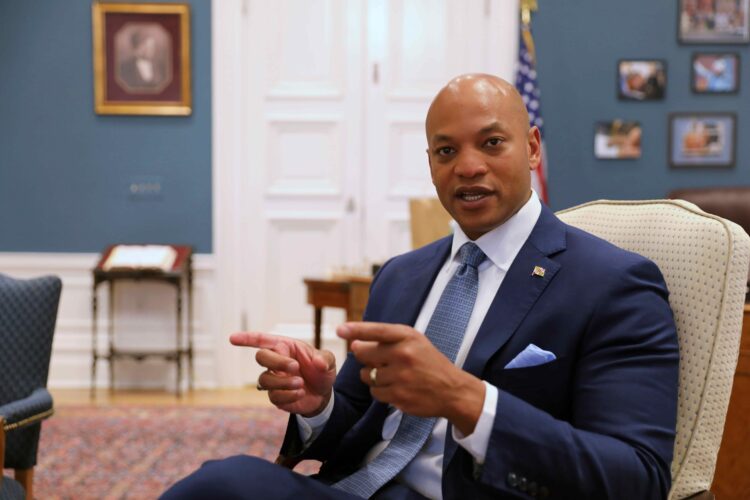Democratic Maryland Governor Wes Moore is set to issue an executive order on Monday pardoning more than 175,000 low-level marijuana convictions. The declaration, described by the governor’s office as the largest state pardon to date, comes less than two years after Maryland voters elected to legalize recreational cannabis use in the state.
First reported by the Washington Post, Moore’s pardons will extend to over 100,000 people convicted of marijuana-related misdemeanors, covering roughly 150,000 convictions for simple possession and an additional 18,000 for use/possession of drug paraphernalia. The number of pardons is based on the number of charges and convictions, with some individuals receiving multiple pardons. The pardons will not result in anyone being released from incarceration, but will instead absolve people of guilt in past legal offenses.
According to the governor’s office, the inclusion of paraphernalia charges makes the Maryland pardons unique among the other nine states that have issued similar orders since 2018.
Recreational marijuana was legalized in Maryland in 2023 after a 2022 amendment to the state constitution was approved by a 67 percent vote. Possession of the drug for personal use was decriminalized in January 2023, with Maryland joining 24 states and the District of Columbia in legalizing recreational use.
Learn the benefits of becoming a Valuetainment Member and subscribe today!
Moore’s executive order will come just before Wednesday’s Juneteenth holiday, and the governor emphasized that the decision was made for the benefit of Maryland’s minority citizens, who are more likely to be arrested for drug use or possession.
“I’m ecstatic that we have a real opportunity with what I’m signing to right a lot of historical wrongs,” Moore told the Post. “If you want to be able to create inclusive economic growth, it means you have to start removing these barriers that continue to disproportionately sit on communities of color.”
According to the latest data, 33 percent of Maryland’s population is Black, and Black men account for more than 70 percent of the state’s prison population. About 25 percent of the convictions covered by the pardons come from the city of Baltimore alone.
“The Moore-Miller Administration is committed to promoting social equity and ensuring the fair and equitable administration of justice,” the governor’s office continued. “Because the use and possession of cannabis is no longer illegal in the state, Marylanders should not continue to face barriers to housing, employment, or educational opportunities based on convictions for conduct that is no longer illegal.”
Related: Daily Marijuana Use Outpaces Daily Drinking in US for First Time
Moore is scheduled to sign the executive order on Monday morning in the state Capitol in Annapolis alongside Maryland Attorney General Anthony Brown. Like the governor, Brown highlighted the pardons as “a racial equity issue” and said the move is “certainly long overdue as a nation.”
“While the pardons will extend to anyone and everyone with a misdemeanor conviction for the possession of marijuana or paraphernalia, this unequivocally, without any doubt or reservation, disproportionately impacts — in a good way — Black and Brown Marylanders,” Brown told the Post.
After the signing, the Maryland Judiciary will update its electronic docket to indicate the pardons, a process estimated to take two weeks. At the same time, the state corrections department will develop a process to update individual criminal records with pardons, which is expected to take up to 10 months.
Connor Walcott is a staff writer for Valuetainment.com. Follow Connor on X and look for him on VT’s “The Unusual Suspects.”
Got a hot scoop or an idea for a story? Connect with the VT writers on Minnect!



















Add comment